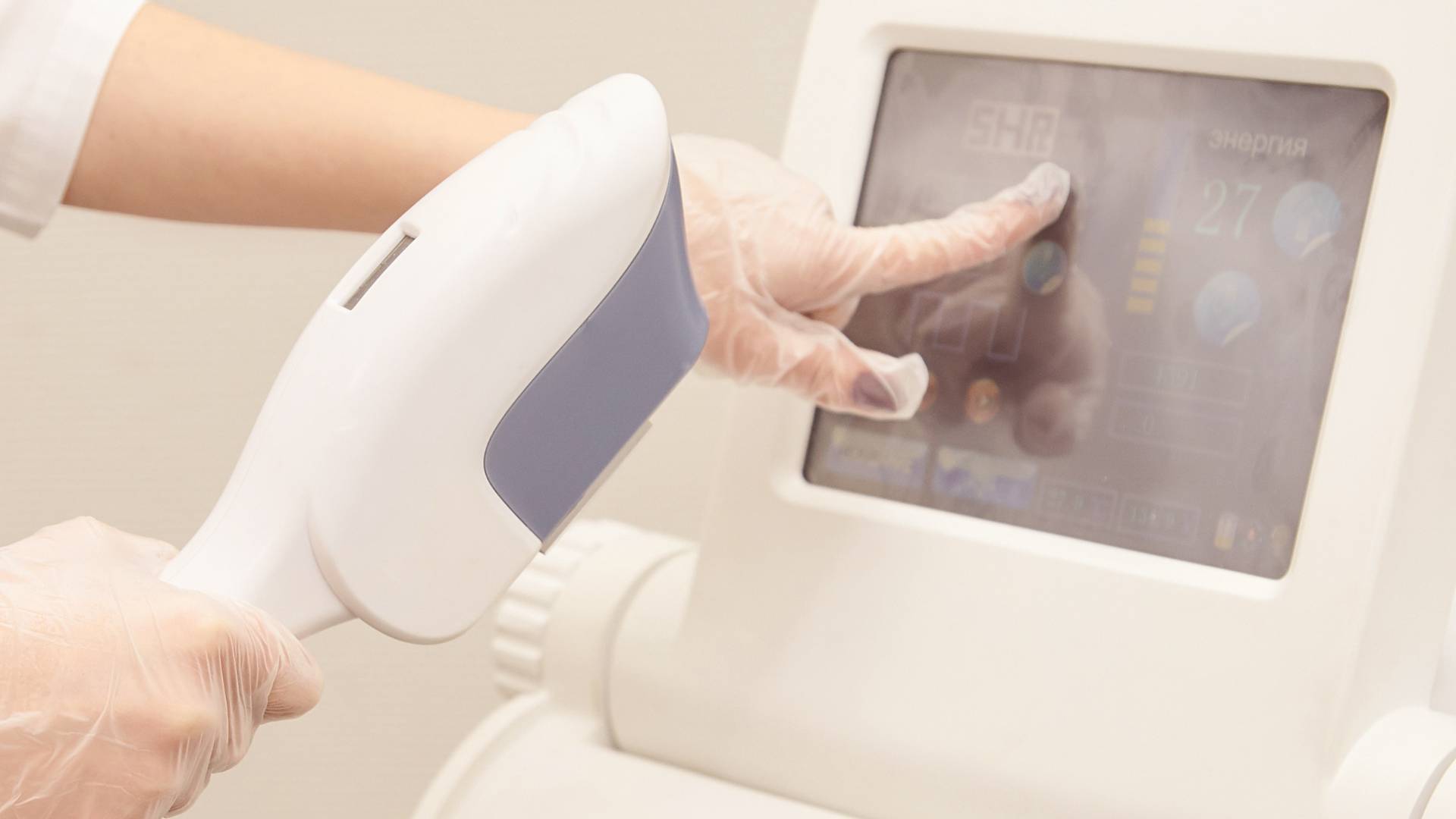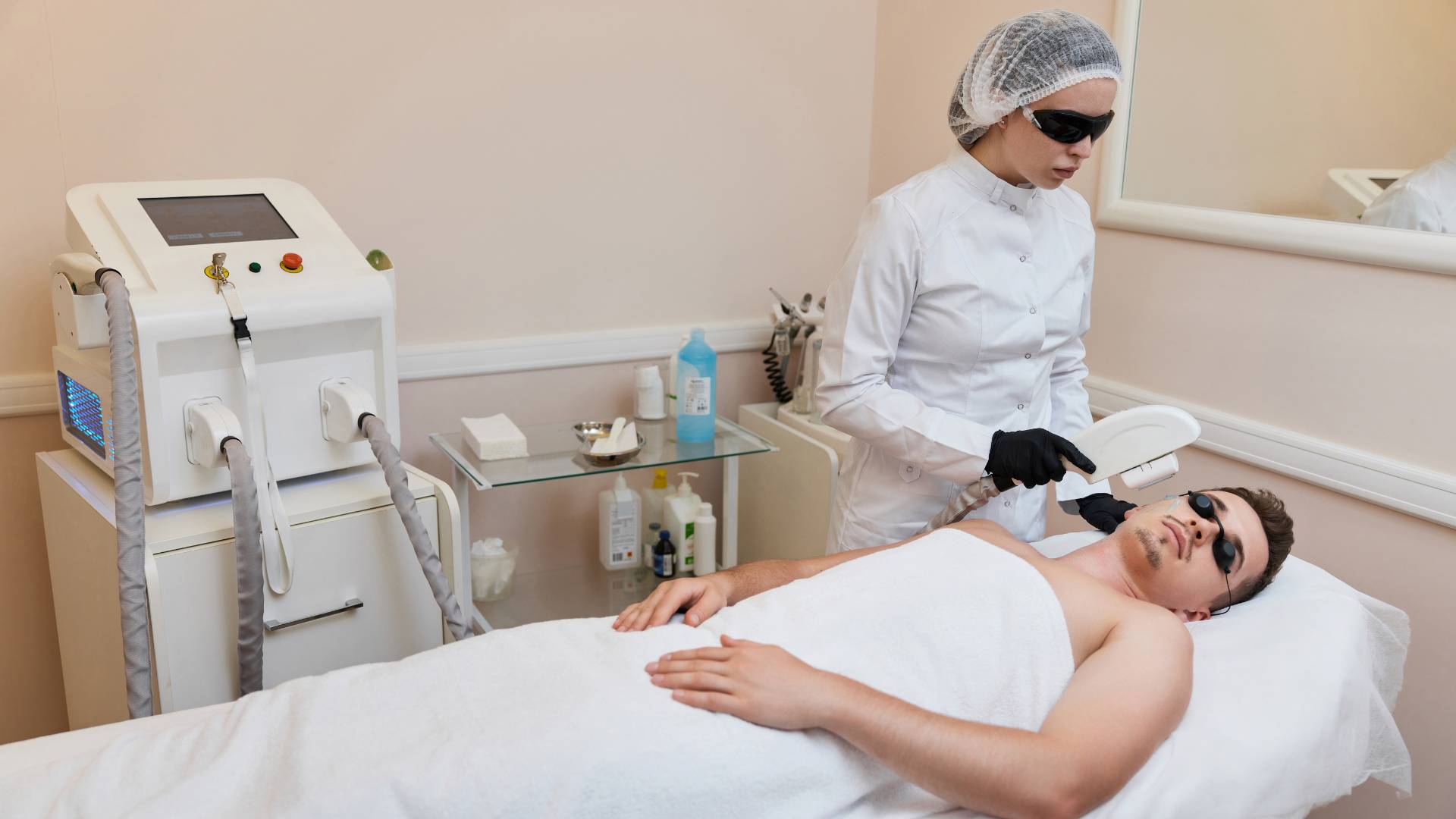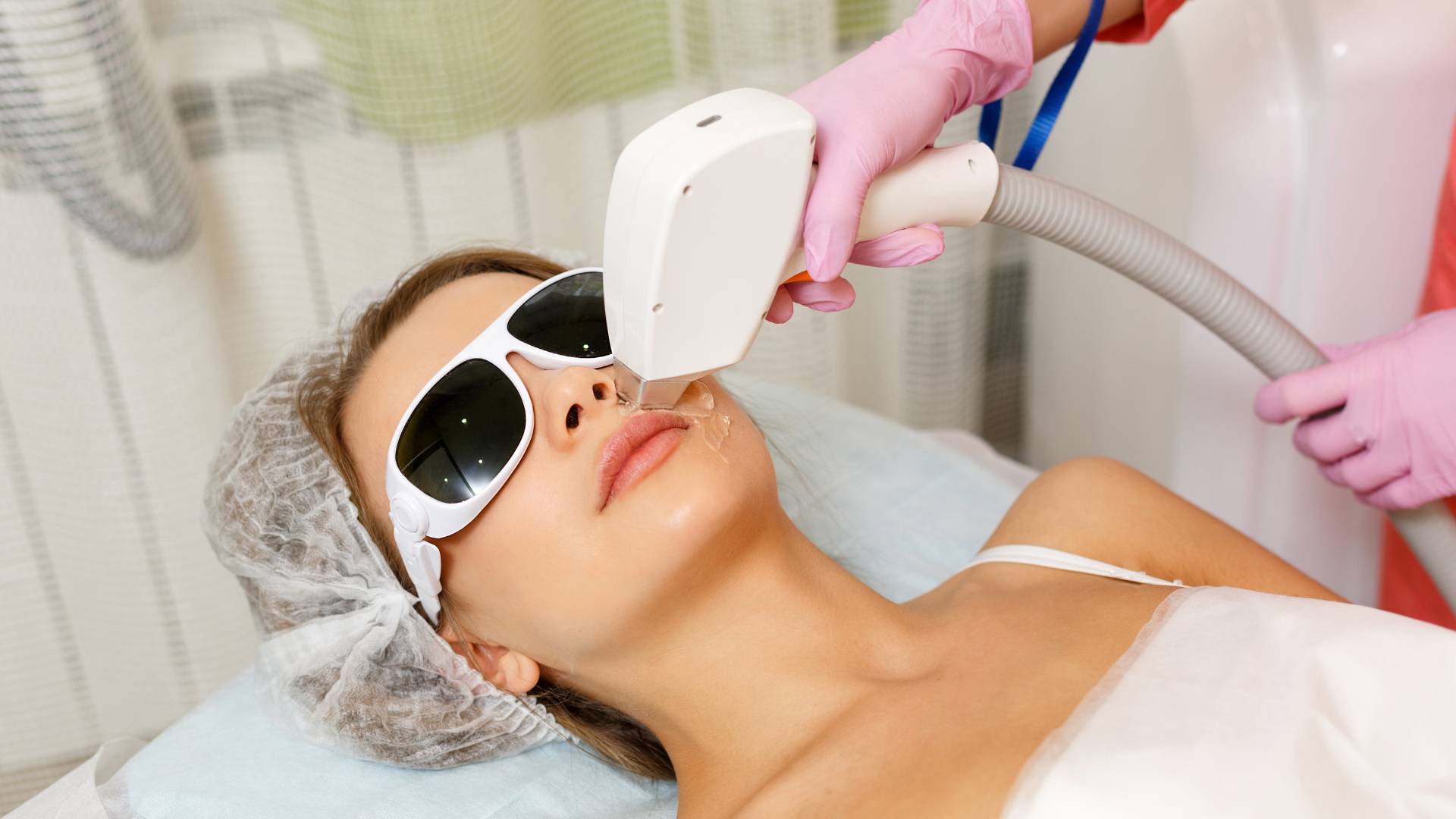The beauty sector is witnessing a surge in demand for laser hair removal services. As a non-invasive, efficient method of hair removal, its popularity has skyrocketed in recent years. Studies indicate that the global laser hair removal market size is expected to grow substantially, driven by advances in laser technology and increasing consumer awareness about aesthetic procedures.
For those exploring how to become a laser hair removal specialist, proper training and certification are essential. Not only are these credentials necessary to meet industry regulations, but they also ensure the highest level of safety and effectiveness for clients. The process involves understanding advanced medical energy devices, the nuances of laser treatments, different skin types, and essential safety precautions.
In this article, we will explore how to become a laser hair removal specialist, focusing on:
- Understanding laser hair removal
- The educational pathway and importance of comprehensive training.
- The process of obtaining national certification and licenses.
- Insights into the job market and potential earnings.
- How Aesthetics Medical Training stands out in providing quality education in medical aesthetics.
Let’s dive in!
Understanding Laser Hair Removal
The journey to becoming a laser hair removal specialist starts with grasping the basics of this fascinating field. Let’s dive into the world of laser technology and discover how it’s revolutionizing the beauty industry.
Basic Principles of Laser Hair Removal
- At its core, laser hair removal involves the use of concentrated light beams (lasers) to target and damage hair follicles, inhibiting future hair growth. This process is not only effective but also offers longer-lasting results compared to traditional methods like shaving or waxing.
- The key to successful laser hair removal is the laser’s ability to differentiate between the hair follicle and the surrounding skin. This is achieved through a principle called selective photothermolysis, where the laser light is absorbed by the pigment in the hair follicle without harming the surrounding skin.
Types of Lasers and Their Uses
- There’s a variety of lasers used in hair removal, each suited for different skin types and hair colors. Common types include the Alexandrite laser, Diode laser, Nd:YAG laser, and IPL (Intense Pulsed Light) devices.
- For instance, the Alexandrite laser is often preferred for treating lighter skin, while the Nd:YAG laser is more suitable for darker skin tones. Understanding these differences is crucial for laser hair removal technicians to ensure safe and effective treatment.
The Science Behind Targeting Hair Follicles
- Lasers work by emitting a wavelength of light absorbed by the pigment (melanin) in the hair. This light energy is converted to heat, damaging the hair follicles and hindering future hair growth.
- The efficacy of this treatment depends on several factors, including hair color, skin type, and the growth phase of the hair. This is why multiple sessions are often needed to achieve the desired result.
Additional Reading: You might also want to take a look at IPL vs Laser Hair Removal: Aesthetic Insights for Medical Professionals.
In the upcoming sections, we’ll explore the role, training, and qualification paths, delve into certification requirements, and provide insights into building a successful career in this vibrant field. Get ready to turn your interest in laser technology into a thriving profession in the beauty sector!
Introduction to the Role of a Laser Hair Removal Technician
A laser hair removal technician is a skilled professional in the cosmetic laser industry, specializing in using concentrated light beams to target and remove unwanted hair. For those interested in how to become a laser hair removal technician, the role requires a solid understanding of laser technology, skin anatomy, and hair growth patterns. Each treatment session is unique, and technicians are skilled in handling various types of laser equipment and customizing treatments to fit each client’s specific needs, taking into account different skin types and hair characteristics.
Essential Skills for a Successful Technician
- Client Consultation and Assessment: Technicians must effectively assess client skin types and hair characteristics to determine suitable laser treatments.
- Technical Proficiency in Laser Equipment: Proficiency in using different types of lasers and understanding their specific applications, such as skin resurfacing or skin tightening.
- Knowledge of Skin Care: A thorough knowledge of skin anatomy and the science behind laser technology is essential for safe and effective treatments.
- Client Safety and Care: Ensuring client safety during laser treatments and providing post-treatment care advice.
- Adaptability and Problem-Solving: Being able to adapt techniques for various skin types and addressing any issues that arise during treatment.
- Professionalism and Ethical Practice: Maintaining high standards of professionalism, including adhering to ethical practices and regulatory agency standards.
The journey to becoming a laser hair removal technician begins with comprehensive education and training. The next section will delve into the necessary educational background, the importance of hands-on training, and the process of obtaining certifications and licenses.
Education and Training – Requirements for Laser Hair Removal
As we explore the essential skills needed for a laser hair removal technician, it becomes clear that a solid educational foundation is key. For those wondering how to become a laser hair removal specialist, this journey is comprehensive, covering both fundamental and advanced skills required to succeed in this evolving field.
What Qualifications Do I Need for Laser Hair Removal?
- A high school diploma or GED is usually the minimum requirement. For those in the medical field, like Physician Assistants or Licensed Estheticians, additional certifications may be needed.
- For clinical and medical hair removal most regions require completion of a certification program from an accredited laser school, such as the National Laser Institute or the Texas Laser Institute, to practice legally.
Training Process:
The educational process to become a laser hair removal technician involves both classroom learning and hands-on experience. Training programs vary in length and depth, from shorter courses to more extensive apprenticeships, but all cover critical areas:
- Programs vary from short courses to extensive apprenticeships, covering both theoretical knowledge and practical skills.
- Training includes learning about different laser types, safety protocols, skin types, and various laser procedures like Skin Resurfacing and Skin Tightening.
- Hands-on training is a key component, where students practice using laser equipment under expert supervision.
Additional Reading: Read more about Empowering Healthcare Professionals: Comprehensive Facial Aesthetics Training at AMT.
How to Select a Laser Hair Removal Course
Choosing the right laser hair removal training program is crucial to gaining the skills and certification necessary for a successful career. Here are key factors to consider when selecting a course:
- Accreditation & Reputation – Ensure the school is recognized by national or state regulatory bodies and has a positive reputation within the industry.
- Comprehensive Curriculum – A quality program should cover laser safety, skin anatomy, laser physics, and hands-on practice.
- Hands-On Training – The best programs offer practical experience using laser equipment under expert supervision.
- Experienced Instructors – Look for courses taught by licensed professionals with real-world experience.
- State Licensing Preparation – Check if the program prepares you for any specific state licensing requirements.
- Job Placement Assistance – Some programs provide career support, helping students connect with potential employers.
Research multiple options, read reviews, and, if possible, speak to graduates of the program before making a decision.
Essential Skills and Knowledge:
To truly excel as a laser hair removal specialist, it’s important to go beyond technical skills.
- Specialists must understand skin anatomy and hair follicles, different laser devices, and patient care, including consultation and post-treatment advice.
- Keeping up-to-date with licensing requirements, certification processes, and ongoing advancements in the field is crucial for maintaining a valid practice.
Next, we’ll dive into certification and licensing, as well as career opportunities. This career path is an exciting blend of science, beauty, and patient interaction, offering a world of possibilities for those passionate about aesthetic treatments.
Certification and License for Laser Hair Removal
Diving into a career in laser hair removal is more than just learning the skills—it’s about navigating certifications and licensing, crucial for both legal compliance and professional excellence. For anyone exploring how to become a laser hair removal specialist, these steps are foundational to building a successful career in this rewarding industry.
Laser Hair Removal Certification Processes
- The journey to certification typically begins after completing an accredited laser hair removal training program. These programs, offered by institutions like the National Laser Institute or the Texas Laser Institute or training centers, such as Aesthetics Medical Training, provide comprehensive knowledge in laser technology, safety, and skin care.
- Post-training, you may need to pass a certification exam. Certifications like the Certified Laser Hair Removal Professional (CLHRP) or the Senior Laser Hair Removal Technician certificate validate your proficiency and knowledge in the field.
- For more advanced laser procedures, such as skin resurfacing or non-ablative skin rejuvenation, specialized certifications are available. These ensure you are equipped with the latest techniques and understandings in these specific areas.

Licensing Requirements Vary by Region:
- Licensing requirements for laser hair removal technicians can vary significantly from one region to another. For example, some states in the U.S. may require a specific laser technician license, while others might accept a general esthetician license.
- If you’re interested in how to become a laser hair removal technician in your area, it’s important to understand your state’s specific licensing requirements. This could mean obtaining an esthetician license, a medical electrologist license, or a laser practitioner license, depending on local regulations.
Examples of Key National Certifications
Several certifications stand out in the realm of laser hair removal, each catering to different aspects of laser technology and client care:
- Certified Laser Hair Removal Professional (CLHRP): This certification is geared towards those specializing in laser hair removal. It covers essential aspects of laser safety, skin types, and the science behind effective and safe hair removal using lasers. It’s a widely recognized credential that showcases a technician’s expertise in laser hair removal.
- National Council on Laser Certification (NCLC) Laser Certification: This certification is a comprehensive acknowledgment of a technician’s ability to safely and effectively operate a variety of cosmetic lasers, including those used for hair removal, skin resurfacing, and skin tightening.
- Certified Clinical Electrologist (CCE) and Certified Medical Electrologist (CME): While these certifications are more broadly focused on hair removal methods, including laser and electrolysis, they are valuable for technicians looking to offer a range of hair removal services.
- Certified Pulse Light Hair Removal Professional: This certification specifically focuses on the use of intense pulsed light (IPL) technology for hair removal, which is a popular alternative to traditional laser techniques.
Obtaining the right certifications and licenses is a key step in your journey as a laser hair removal technician. It not only solidifies your credibility but also ensures that you provide the highest standard of care to your clients. As you progress in your career, remember that learning and adapting are part of the exciting journey in this ever-changing industry.
Practical Experience
Having explored the essential steps of certification and licensing, it’s clear that while theoretical knowledge is vital, it’s only one side of the coin. Equally important for those interested in how to become a laser hair removal technician is gaining practical, hands-on experience. This on-the-job training is where aspiring specialists truly develop their skills and prepare for real-world scenarios.
Gaining Hands-On Experience:
- Internships or apprenticeships, often provided by institutions like the National Laser Institute or our Aesthetics Medical Training school, are invaluable. They offer a chance to work with various laser devices and technologies, under expert guidance.
Training in Different Skin Types and Hair Textures:
One of the most essential aspects of how to become a laser hair removal technician is understanding the diversity of clients you’ll encounter.
Practical training exposes you to diverse skin types and hair textures. It’s essential for ensuring safe and effective treatment for all clients.
Additional Reading: Learn about Mastering the Light: IPL Laser Training at Aesthetics Medical Training.
This stage of your training is where you learn the real art of laser hair removal. From basic techniques to advanced cosmetic procedures, it’s a crucial step in building your career in the dynamic beauty industry. Remember, the broader your hands-on experience, the more versatile and competent you’ll become as a specialist.
Starting Your Career as a Laser Hair Removal Specialist
Embarking on a career in laser hair removal is an exciting journey. With your training and certifications in hand, you’re ready to take the beauty industry by storm. Here’s how to get started:
Beginning Steps:
- Make sure you have the necessary certifications and licenses.
- Start with an apprenticeship or join a clinic to gain experience. Keep up with the latest in laser treatments, like skin resurfacing and skin tightening.
Building Your Client Base:
- Network within the beauty industry and connect with peers and medical professionals for referrals.
- Use social media and digital marketing to showcase your work and attract clients.
Choosing Your Path:
- Joining a practice offers stability and experience. It’s a great way to start and build your reputation.
- Starting your own business requires more effort but gives you more control and potential growth.
Whichever route you take, remember to stay committed to safety and high-quality patient care. Your journey in the dynamic world of laser hair removal is just beginning, and it’s filled with opportunities to grow and thrive in the beauty industry.
Average Salary and Career Prospects in Laser Hair Removal
After delving into the intricacies of certification and licensing, it’s equally essential for those exploring how to become a laser hair removal specialist to understand the financial and professional outlook in this field. Understanding the average salary range and the factors that influence it, along with the potential for career growth, is crucial for those aiming to establish a successful career in laser hair removal.
How Much Does a Laser Technician Make?
The average salary for laser hair removal technicians can vary widely, influenced by several key factors. According to industry data, the salary range typically falls within a spectrum that reflects differences in location, experience, and the type of employer.
- Location: Geographic location plays a significant role in salary variations. Technicians in metropolitan areas or regions with a higher cost of living may command higher wages compared to those in rural areas.
- Experience: As with many professions, experience can significantly impact earnings. Seasoned technicians with a robust clientele and advanced skills often earn more than those just entering the field.
- Type of Employer: Employment settings also affect salary. For instance, laser hair removal techs working in high-end medical clinics or cosmetic laser centers may have different earning potentials compared to those in smaller, local skin care clinics.
The average salary for a laser hair removal technician in the United States is approximately $19.00 per hour in 2024. The salary range typically spans from $14 to $25 per hour, with bonuses and commissions potentially adding to the total pay.
In Nevada, the average annual salary for a laser hair removal technician is about $46,000 as of late 2023. The salary range in Nevada typically falls between $41,544 and $52,811, depending on various factors such as location, years of experience, and additional skills.
Career Growth in the Laser Hair Removal Field
The career field for laser hair removal technicians is dynamic and continuously evolving. For anyone wondering how to become a laser hair removal specialist and make a mark in this profession, the cosmetic laser industry offers ample growth opportunities. With a high demand for skilled professionals in medical aesthetics, job prospects are expected to expand, creating even more possibilities in this exciting field.
The career field for laser hair removal technicians is dynamic and evolving. With the cosmetic laser industry continually growing, the demand for skilled technicians is likely to increase, leading to more job opportunities.
In the next section, we will explore how our premier online school contributes to educational excellence in the field of cosmetic lasers and medical aesthetics, offering comprehensive virtual classes and hands-on training programs that prepare healthcare practitioners for a thriving career in aesthetic laser treatments.

Aesthetics Medical Training – Online Cosmetics Laser Training
As we wrap up our exploration into becoming a laser hair removal technician, it’s crucial to highlight the role of our premier online school, dedicated to educational excellence in the field of medical aesthetics. Our school is not just a learning platform; it’s a gateway to a successful career in the rapidly growing cosmetic laser industry.
Our courses are meticulously designed to cater to the needs of Registered Nurses (RNs), Advanced Practice Registered Nurses (APRNs), and other qualified healthcare professionals, providing them with the knowledge and skills required to excel in the field of laser hair removal and other cosmetic laser procedures.
The training includes in-depth modules on laser safety, skin types, laser hair removal equipment, and patient care techniques, ensuring comprehensive knowledge in the field. We focus on the practical application of laser technology in various cosmetic procedures, preparing participants for real-world scenarios.
Tailored Virtual Classes
Our virtual classes provide comprehensive coverage of essential topics in laser hair removal:
- Focused on Laser Technology: Detailed understanding of various lasers and their applications.
- Skin Science: In-depth study of skin types and hair growth, crucial for personalized treatments.
- Safety and Regulations: Emphasis on laser safety and adherence to regulatory standards.
- Client Interaction: Training in effective client consultations and assessments.
Hands-On Training
Our school stands out with its practical, hands-on training:
- Real Equipment Experience: Hands-on practice with the latest laser equipment under expert guidance.
- Clinical Exposure: Direct experience in clinical environments, preparing students for real-world scenarios.
- Diverse Clientele Practice: Training with varied skin types and conditions, enhancing practical skills.
Upon completion, students will have a solid foundation to start their career as cosmetic laser technicians. Furthermore, they will receive a certificate, which is a stepping stone to obtaining licensing as a laser hair removal technician or cosmetic laser practitioner.
Career and Certification Readiness
Graduates are equipped for diverse roles in the aesthetic field, from licensed technicians to senior positions. Our curriculum is designed to prepare students for national certifications and state licenses, in line with standards from top institutes like the National Laser Institute.
Our online training center represents a bridge between the medical field and the beauty industry, offering healthcare professionals a unique opportunity to expand their career into the aesthetic field.
With a curriculum that covers the basics of laser hair removal to advanced laser training requirements, our graduates are well-prepared to meet the demands of this dynamic industry.
Join us to explore the limitless possibilities that aesthetic laser technology offers. Get in touch today!
Quick Reference: Guide to Become A Certified Laser Technician
- Laser Hair Removal Basics: Uses concentrated beams of light to damage hair follicles, preventing regrowth.
- Types of Lasers: Alexandrite (lighter skin), Diode (various skin types), Nd:YAG (darker skin), IPL (general hair removal).
- Essential Skills: Client assessment, technical proficiency, safety knowledge, professionalism.
- Qualifications Needed: High school diploma or equivalent, esthetician or medical credentials may be required.
- Choosing a Course: Look for accredited programs with hands-on training and experienced instructors.
- Certification & Licensing: Required in most states; check local regulations for specifics.
- Salary Expectations: Average U.S. salary is $19/hour, with earnings depending on location, experience, and employer type.
- Career Growth: Opportunities exist in medical spas, dermatology clinics, and self-employment.
- Next Steps: Enroll in a recognized training program, complete certification, and gain practical experience.
Post Update: The article was updated on February 10th, 2025, and originally published on November 2nd, 2024. It has been completely revamped and updated for accuracy and comprehensiveness.




